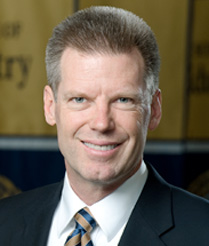As
The Wall Street Journal
noted this week, evangelical Christians across the country are increasingly supporting immigration reform—not an issue usually associated with a demographic known for its conservative politics. But the demographic of evangelical churches are themselves changing as more and more Latinos join their congregations, a phenomenon documented by another national story this week, on the cover of Time.
All these dynamics are playing out in Washington state. Last month, a number of church leaders joined with business and agricultural figures to launch the Washington Compact, an organization devoted to pressing for immigration reform. Among the participants is Joseph Castleberry, the president of Northwest University, an evangelical institution in Kirkland.
“The laws as they stand on the books are neither responsible nor respectable,” Castleberry tells Seattle Weekly. Castleberry spent 20 years working as a pastor and university professor in Latin America, where he developed an appreciation for the root causes of immigration. Hispanic immigrants feel like they’re doing what’s right by migrating for jobs that can feed their families, he says. And those jobs in the U.S. are essential for this country’s economy. “We had crops rotting in the field last year because there wasn’t anyone to pick them,” he says.
“We need these people,” he continues, referring to immigrants who are illegally here. “Yet we pretend that the fault is all on their side. That’s bearing false witness.”
He casts the matter as one of “morality,” which he says demands giving immigrants a way to live and work here legally, especially the millions that are already in the U.S. “I’m in favor, personally, of a pretty broad amnesty,” he elaborates.
Castleberry also notes that his church, Assemblies of God, featured in the Time piece, ”doesn’t ask the legal status” of its congregants.
But actually, it sometimes does. Joseph Fuiten, a prominent pastor of an Assemblies of God church, Cedar Park in Bothell, recalls that the church ran a Latino ministry for several years. “We had a rule,” he said. Congregants couldn’t become deacons or Sunday school teachers “unless they were legal.” (The ministry closed about three years ago when the Spanish-speaking pastor moved on.)
That rule is no doubt a reflection of Fuiten’s more ambivalent stance toward immigration reform. While an increasing number of immigrants attend his church—including participants in a lively Iranian ministry, who meet weekly for a Farsi-language service on the Bothell campus—he says he’s wary of a “wholesale throwing open of the doors to anybody and everybody.”
For one thing, he contends, “so many immigrant groups come here and don’t want to assimilate.” He mentions Dearborn, Michigan, home to a large Muslim population that in Fuiten’s view is “not really becoming part of America.”
His views suggest that evangelicals are not exactly united on the subject. And yet, the pro-reform camp seems to be carrying the day publicly. While people like Castleberry are speaking up, Fuiten—who was once active in campaigns for George W. Bush and who broadcasts his political and theological views on many topics in e-mails, podcasts and blogs posts—is sitting the immigration debate out. “I’m not agitated about it,” he says, adding that he doesn’t want to spend his time either advocating for immigration reform or opposing it.








